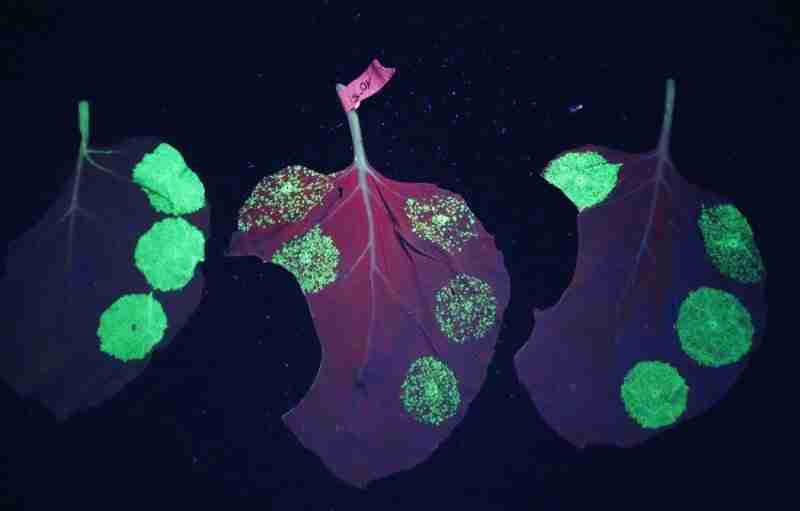There is still no approved drug for Ebola. The closest is the experimental biotherapeutic drug ZMapp, which was in extremely short supply during the 2014 epidemic.
..
Mapp Biopharmaceutical produces ZMapp, which consists of three lab-made proteins, in the leaf of a bioengineered version of the plant Nicotiana benthamiana, a close relative of the tobacco plant.
…
The process, however, does not yet yield large enough quantities of the medicine for commercial use to effectively fight the raging epidemic or be stored in readiness for the next threat.
…
Armed with a grant from NSF in 2012, PhylloTech bioengineered a tobacco plant to produce spider silk, an extremely strong technical protein fiber. The fiber is scarce because it is only made by spiders and spiders, being cannibals, cannot be grown in captivity like silk worms. The leaf surface of Phyllotech’s bioengineered plants secreted large quantities of silk fibers whose recovery involved the non-destructive process of washing down the nearly pure fiber from the leaf.
…
The company’s engineered plants, when cultivated in a growth chamber under controlled conditions, can yield the Ebola virus monoclonal antibody in up to 98 percent purity with minimal purification steps. Moreover, this “green factory” can yield a fresh commercial batch of the biopharmaceutical every 10 days.
Read full, original post: Bioengineered plants help defend against Ebola and other deadly diseases



































